Related Research Articles
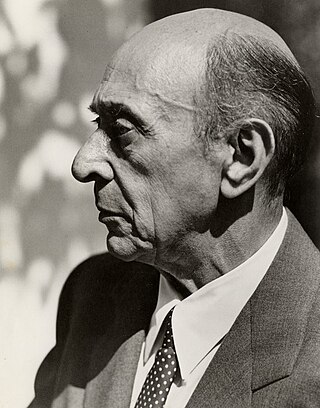
The term expressionism "was probably first applied to music in 1918, especially to Schoenberg", because like the painter Wassily Kandinsky (1866–1944) he avoided "traditional forms of beauty" to convey powerful feelings in his music. Theodor Adorno interprets the expressionist movement in music as seeking to "eliminate all of traditional music's conventional elements, everything formulaically rigid". This he sees as analogous "to the literary ideal of the 'scream' ". As well Adorno sees expressionist music as seeking "the truthfulness of subjective feeling without illusions, disguises or euphemisms". Adorno also describes it as concerned with the unconscious, and states that "the depiction of fear lies at the centre" of expressionist music, with dissonance predominating, so that the "harmonious, affirmative element of art is banished". Expressionist music would "thus reject the depictive, sensual qualities that had come to be associated with impressionist music. It would endeavor instead to realize its own purely musical nature—in part by disregarding compositional conventions that placed 'outer' restrictions on the expression of 'inner' visions".
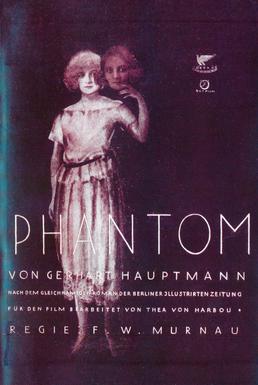
Phantom is a 1922 German romantic fantasy film directed by F. W. Murnau. It is an example of German Expressionist film and has a surreal, dreamlike quality.
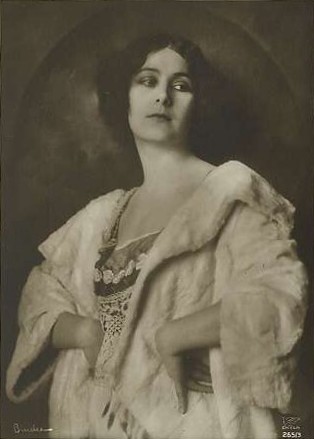
Lil Dagover was a German actress whose film career spanned between 1913 and 1979. She was one of the most popular and recognized film actresses in the Weimar Republic.

The Woman from Monte Carlo is an American pre-Code film produced by Warner Bros. subsidiary First National Pictures in 1931 and released on January 9, 1932. It was directed by Michael Curtiz and gave top billing to German star Lil Dagover in her sole Hollywood film. Leading men Walter Huston and Warren William were listed after the title in the manner of supporting players.
Vienna 1910 is a 1943 German biographical film directed by Emerich Walter Emo and starring Rudolf Forster, Heinrich George, and Lil Dagover. It is based on the life of Mayor of Vienna Karl Lueger. Its antisemitic content led to it being banned by the Allied Occupation forces following the Second World War.

The Higher Command is a 1935 German historical film directed by Gerhard Lamprecht and starring Lil Dagover, Karl Ludwig Diehl and Heli Finkenzeller. Produced and distributed by UFA, it was shot at the company's Babelsberg Studios in Potsdam. The film's sets were designed by the art directors Otto Erdmann and Hans Sohnle.

Chased by the Devil is a 1950 West German crime film directed by Viktor Tourjansky and starring Hans Albers, Willy Birgel and Lil Dagover. A doctor discovers a new medical cure with dangerous side effects, and takes the drug himself to test its limitations.
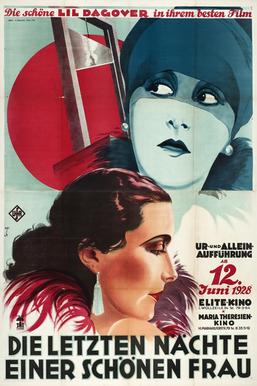
Attorney for the Heart is a 1927 German silent romance film directed by Wilhelm Thiele and starring Lil Dagover, Jean Murat, and Ernst Stahl-Nachbaur. The film's sets were designed by the art director Alexander Ferenczy.
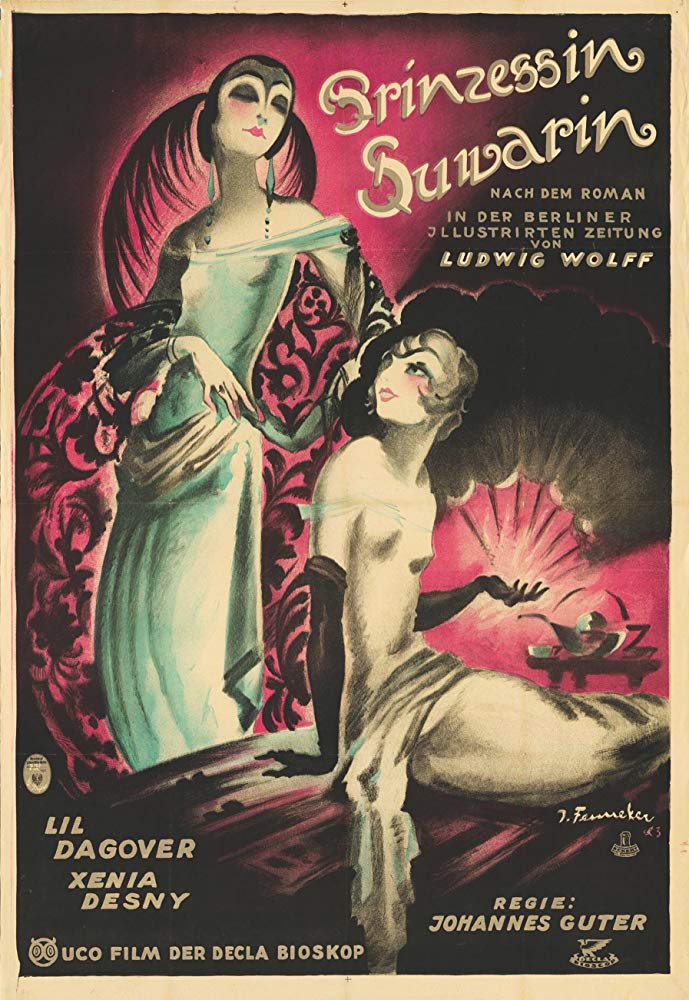
Princess Suwarin is a 1923 German silent film directed by Johannes Guter and starring Lil Dagover, Heinrich Schroth and Xenia Desni. It was shot at the Babelsberg Studios of Decla-Bioscop in Berlin. The film's sets were designed by the art director Erich Czerwonski.
Death the Victor is a 1920 German silent film directed by Nils Olaf Chrisander and starring Uschi Elleot, Werner Krauss and Johannes Riemann.
Killing Silence is a 1920 German silent film directed by Artur Holz.
The Tophar Mummy is a 1920 German silent film directed by Johannes Guter.
The Hunt for Death is a 1920 German silent film directed by Karl Gerhardt and starring Lil Dagover. It was followed by three sequels.
Luise Millerin is a 1922 German historical film directed by Carl Froelich and starring Lil Dagover, Paul Hartmann and Walter Janssen. It is based on the play Intrigue and Love by Friedrich Schiller.
The Dancer is a 1919 German silent film directed by Carl Froelich and starring Lil Dagover.
Murders in the Greenstreet is a 1921 German silent film directed by Johannes Guter and starring Lil Dagover.
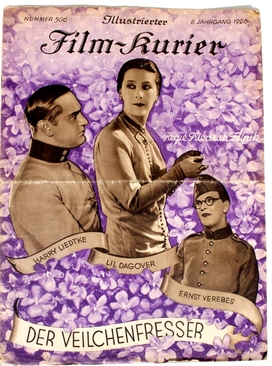
The Violet Eater is a 1926 German silent comedy film directed by Frederic Zelnik and starring Lil Dagover, Harry Liedtke and Ernö Verebes. It was shot at the Staaken Studios in Berlin. The film's sets were designed by the art director Andrej Andrejew. It premiered at the Marmorhaus in Germany's capital.
Power of Temptation is a 1922 German silent film directed by Paul L. Stein and starring Lil Dagover, Ilka Grüning and Arnold Korff.
Island of the Dead is a 1921 German drama film directed by Carl Froelich and starring Lil Dagover, Bernhard Goetzke and Walter Janssen.
The Mask is a 1919 German silent crime film directed by Ewald André Dupont and starring Max Landa, Lil Dagover and Gertrude Welcker.
References
- ↑ Expressionism Reassessed p. 93